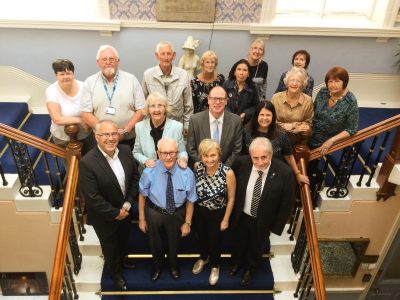Sefton Older People at The Heart of Partnership Working



This case study focuses on partnership working between older people in the Borough of Sefton and the partners in local and regional transport provision. In this case study, the engagement of older people in the development of a new rolling stock for Mersey Rail is highlighted. This new train has been designed with the input of older people and people with disabilities. The second example of partnership working shows how engagement between local older people and the Regional Transport Authority, Mersey Travel, enabled the successful award of Central Government Grant Funding to install a lift into a train station that was inaccessible to many due to access being via a long staircase.
Main target group: Older people in general
Other target group(s): people with mobility difficulties
Sector(s): Transportation
Other sector(s): health and wellbeing
Desired outcome for older people:
Be mobile
Name: Shenton, Justine
Email address: justine.shenton@seftonadvocacy.org
Preferred language(s): English